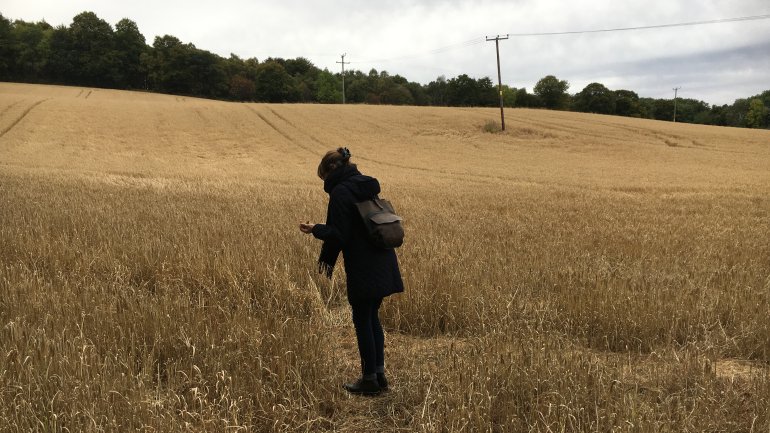Amara Hark-Weber's Rare Craft Fellowship Award Trip
Earlier this year, I received the Rare Craft Fellowship Award from ACC and The Balvenie. Part of this award was an invitation to visit The Balvenie distillery in Scotland and travel in the highlands and around London to visit fellow shoemakers and craftspeople in other trades.
We began in the highlands where it seemed much of the economy was based around either (or both) craft and whisky. We had several free days before visiting The Balvenie distillery, so we organized mini tours visiting woolen mills, both modern and those thumping away just as they had at the height of the Industrial Revolution, castles in ruins and in rebuild, and the rocky, windy shore. The most impressive and inspiring day was visiting a cooperage, or barrel maker’s workshop – a craft that prior to this that I had never even heard of.
The first cooperage that we visited hosted around 20 coopers. Watching them work, I felt a kinship that I rarely have felt with craftsmen outside my own trade. It took me a long time to realize why this was, as shoemaking and barrel-making do not share tools, technical skills, or end result. But after having spent several days of slipping across a new countryside seeing the mechanized making of raw material into object, I suddenly was confronted with individuals using their bodies to create with mechanical precision. It was more than expertise in movement – it was a deep conversation between material, motion, time, and product – the understanding of both one’s body and a material and harmonizing of the two together. It was mesmerizing to see this concentrated work being played out in real time, as is the same focus that I strive for in my own workshop.
After a week in Scotland, we flew south to London, home to some of the finest shoemakers in the world. Visiting workshops, showrooms, and production facilities showcased a quality of shoemaking that I had rarely seen prior to this trip. To handle such fine shoes, lasts, and leathers and to visit the workshops and speak with the makers made an enormous impact on my understanding of what shoemaking can be and the generosity that we can offer our fellow craftsmen.
Over the course of the two weeks, my thoughts surrounding shoemaking and my understanding of the material world shifted greatly. I began to think of craft not as an activity or product, but rather as an aperture through which we can pour ourselves at varying amounts. At times we become lost and at times we lose ourselves. Coopers, shoemakers, whisky-makers, and weavers alike share this pouring of oneself into the movements and focused mindset where time stops. It is pure selfishness and selflessness; a position of both excess and restraint, where one must tell the rest of the world to continue on without you as you give your entire self to a singular activity, investing years of practice, soreness, solitude, and ignoble work to gain a relationship with materials through production.
Shoemaking is certainly a rare craft. But, having visited many workshops during this trip and over the course of the past year, I’ve realized that while I truly love shoemaking, there is nothing inherently special about it. Rather what should be celebrated as rare is the work of the many women and men who dedicate themselves over and over again to their workshop. They are bucking everything that society tells us about meaning and value to pursue the making of singular objects. It is tempting to call the pursuit of craft humble, but it is not. It it is glorious and sings the beauty of the everyday. Visiting The Balvenie and other workshops in the highlands and England reminded me of how rare this dedication is, and reaffirmed my commitment to the everyday work of the workshop.




